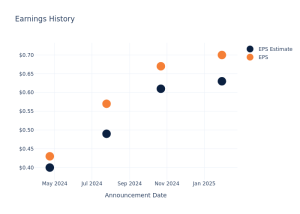Some tech jobs are not coming back any time soon
If 2023 and 2024 were the years tech hiring fell back to Earth, 2025 is proving that gravity still has a hold.
The tech sector is stumbling through another year of caution, contraction, and recalibration. Layoffs are continuing at a steady clip — with more than 23,000 workers let go across 93 tech companies so far this year, according to Layoffs.fyi. That’s after a brutal 2024, in which more than 152,000 tech workers lost their jobs.
TrueUp puts the 2024 global layoff total even higher, estimating more than 260,000 roles eliminated, including 15,000 at Intel, 14,000 at Amazon, and 12,500 at Dell.
For business schools — and especially their freshly-minted MBAs, who are weeks from graduation — the implications are hard to ignore.
At Harvard Business School, 23% of job-seeking Class of 2024 MBA graduates were still looking for work three months after graduation — more than double the figure from just two years ago. “Going to Harvard is not going to be a differentiator,” Kristen Fitzpatrick, managing director of MBA career and professional development at HBS, told the Wall Street Journal last fall. “You have to have the skills.”
That stark reality is being felt well beyond Boston. At UC Berkeley’s Haas School of Business — long a feeder school to Silicon Valley giants — tech’s dominance is waning. For the first time in more than two decades, consulting overtook tech as the top industry for Haas grads in 2024. Across top schools, the pipeline to FAANG companies — Facebook, Apple, Amazon, Netflix, Google — and adjacent stalwarts has narrowed, with many firms either freezing MBA hiring or cutting internship spots altogether. Duke Fuqua School of Business has seen its tech placement drop 15 percentage points since 2021.
The slowdown is being felt most acutely by international students and career-switchers, who often rely on MBA internships to pivot into tech. But all feel the pinch: European B-schools like London Business School, INSEAD, and IESE have also experienced significant declines. “It looks like we’re headed into a tough economy in general right now,” one such career switcher, a Wharton MBA, told P&Q last year, “and so it’s not just the students from a non-traditional background or first-gen or low-income background who need to be wary.”
|
Business School |
Tech Placement 2022 |
Tech Placement 2023 |
Tech Placement 2024 |
Change (2022–2024) |
|---|---|---|---|---|
|
Harvard Business School |
19% |
16% |
16% |
-3 |
|
Stanford Graduate School of Business |
30% |
24% |
22% |
-8 |
|
Wharton School (UPenn) |
17% |
13.5% |
14% |
-3 |
|
MIT Sloan School of Management |
23% |
24% |
19% |
-4 |
|
Columbia Business School |
16% |
11% |
10% |
-6 |
|
Northwestern Kellogg School |
20.5% |
17% |
20% |
-0.5 |
|
Chicago Booth School of Business |
15% |
15.5% |
15% |
Even |
|
UC Berkeley Haas School |
33% |
30% |
24% |
-9 |
|
NYU Stern School of Business |
17% |
14% |
9% |
-8 |
|
Duke Fuqua School of Business |
23% |
17% |
12% |
-11 |
|
Yale School of Management |
8% |
10% |
10% |
+2 |
|
UVA Darden School of Business |
14% |
10.5% |
9% |
-5 |
|
Cornell Johnson Graduate School |
15% |
11% |
11% |
-4 |
|
Michigan Ross School of Business |
15.5% |
15.5% |
15% |
-0.5 |
|
CMU Tepper School of Business |
28% |
29% |
29% |
+1 |
|
Indiana Kelley School of Business |
13% |
21% |
14% |
+1 |
|
London Business School |
29% |
21% |
21% |
-8 |
|
INSEAD |
22% |
9% |
11% |
-11 |
|
IESE Business School |
18% |
9% |
12% |
-6 |
|
Oxford Saïd Business School |
21% |
11% |
NA |
-10 |
The weakening of the B-school-to-tech pipeline predates the current industry implosion. According to data from the Graduate Management Admission Council, Gen Z — the youngest members of the workforce — are less likely to consider careers in tech, as women and underrepresented U.S. candidates drift away from the sector in greater and greater numbers. Consulting remains the favorite industry for all B-school grads, with tech fast fading as No. 2.


